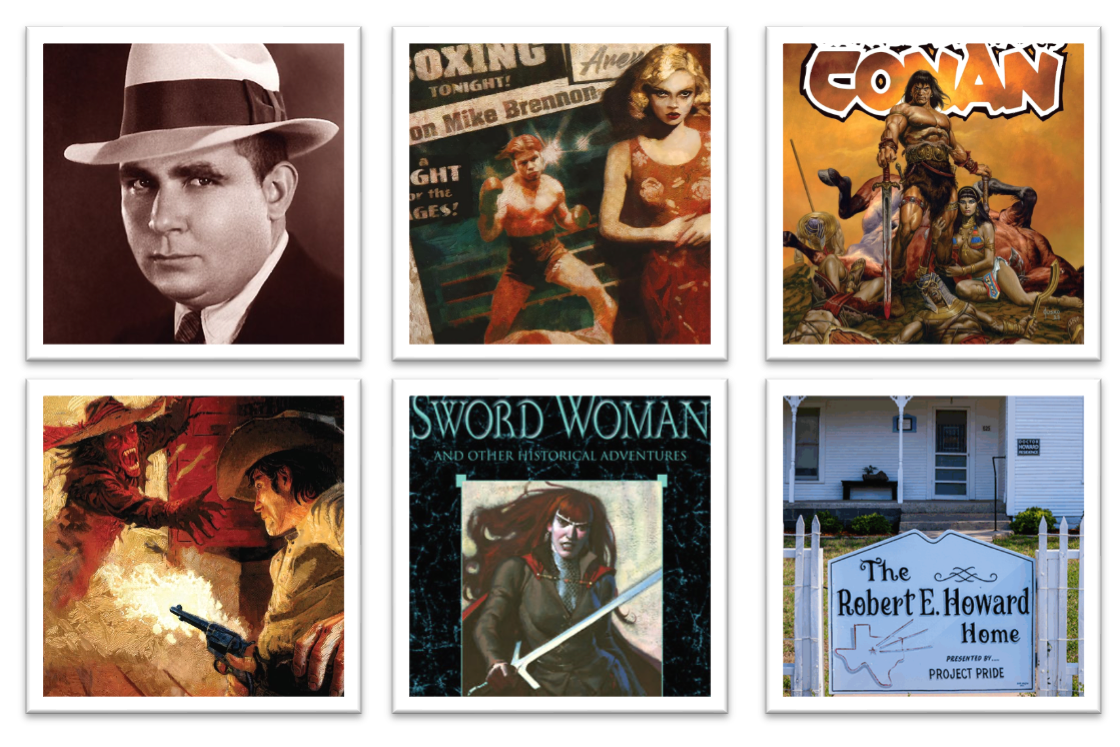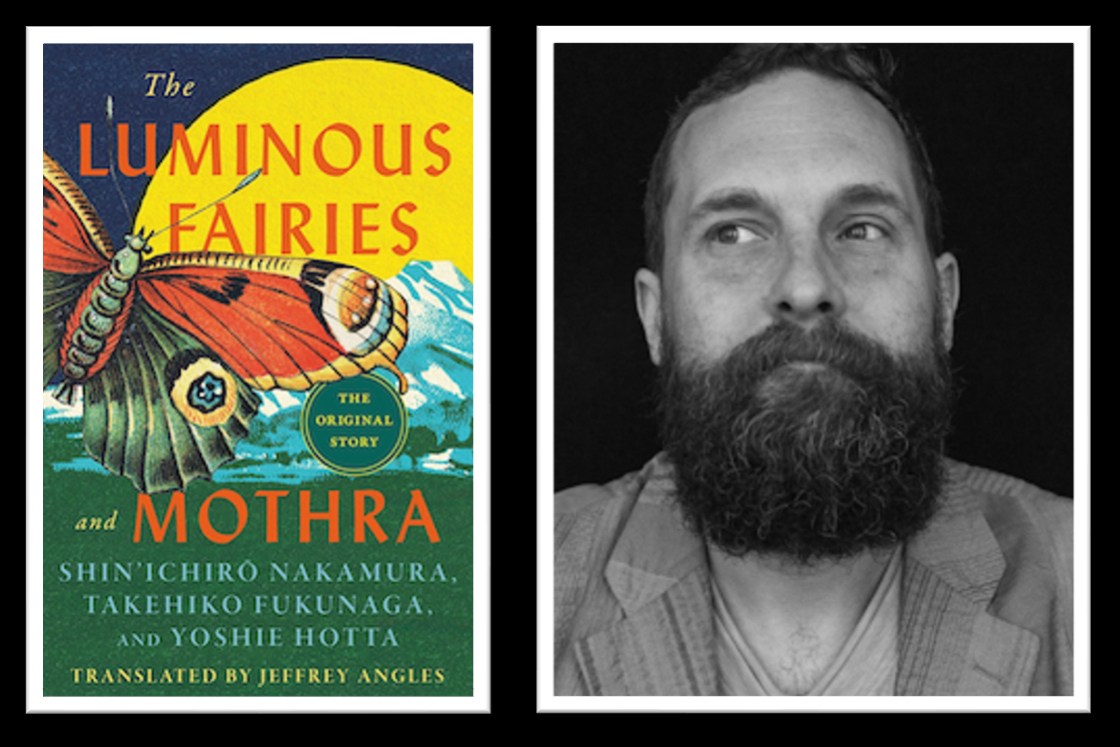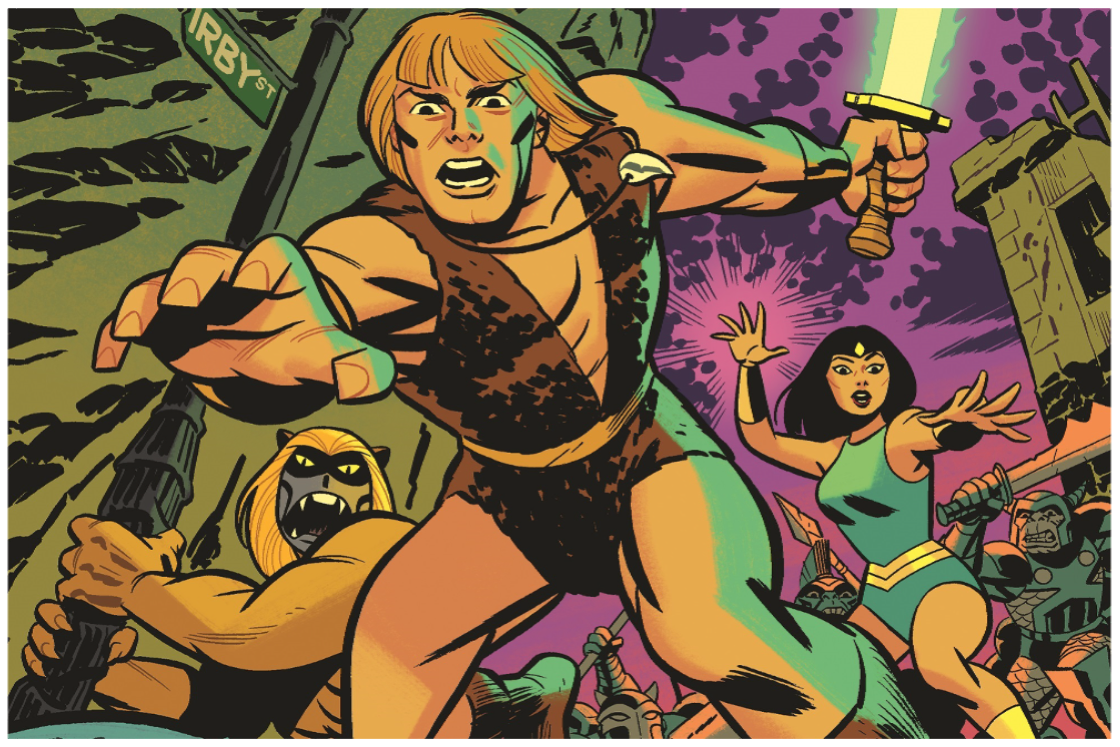Urban Fantasy author Patricia Briggs: “I think that underpowered characters make much better protagonists.”
The top-selling urban fantasy author explains how working with animals helps her write about people. (Who are also animals.)
Today, Patricia Briggs is the bestselling author of the Mercy Thompson urban fantasy series and the Alpha and Omega novels. But her days of writing popular novels about shapeshifters began as a little girl when she pretended to be a horse.
“When other children were dreaming that they were adopted and someday the king of some foreign land would recognize them as their only child—I dreamed of being a horse,” she says. “I can still whinny pretty well when I want to.” [SOURCE: Crescent Blues]
And, perhaps not surprisingly, Briggs’s childhood activities informed the author she’d eventually become. “When I was a kid, my friends and I would play Star Trek, we’d play I Dream of Jeannie, and then we’d pretend to be animals. The idea of being something that you’re not is very, very attractive. I think it also drives my love of fiction. When you’re reading a book, we tend to be someone else. So, all of that kind of codified into this love of shape changing.” [SOURCE: Buzzy Mag]
With her debut novel, 1993’s Masques (Ace), Briggs started out writing fantasy in a medieval-like setting. She says she chose to write fantasy because she knew she’d never get bored: Of all the genres, she felt like fantasy is most open to adding elements of other genres—including mysteries, espionage, thrillers, adventure, and romance. [SOURCE: The Book Pushers]
RELATED LINK: Mercy Thompson Series In Order
Making A Change
A few years and a few books in, her editor suggested to the author that she might want to switch things up a bit: The urban fantasy subgenre was growing in popularity—and she was looking for an author who’d write it.
“I had just completed several months of marathon writing, and I was pretty burned out on inventing social norms and trade routes. I had been planning on taking a few weeks hiatus from writing, when my editor called and asked if I could write an urban fantasy.
“The light went on. I could play with all the non-human, mythical, magical or whatever elements I wanted, and add as much romance, mystery or horror as I felt like, just like in traditional fantasy but the world was already built. I didn’t have to worry about trade routes, or economics, or period clothing. I didn’t have to research swordsmanship, chicken farming, and regional dance. I could just play with the fun parts of storytelling. I gave my editor a very enthusiastic yes and immediately started feeling creative.” [SOURCE: McNally Robinson Booksellers]
Moon Called (Ace), published in 2006, introduced readers to Mercedes “Mercy” Thompson. A resident of the Pacific Northwest, Mercy is a Native American “walker” who can shift at will into coyote form. She’s a mechanic who owns her own garage and repairs mostly German cars.
Briggs took advantage of the mashup of urban fantasy to have the word outside your door populated by all manner of supernatural creatures. And with advances in modern technology and communications, these creatures have been ousted from the shadows and are becoming known to the world.
In the years since Moon Called, Briggs has continued to expand the scope of her World of the Marrok. (The “Marrok” is the head of the werewolf clan.) There are as of now twelve books in the Mercy Thompson series, and five titles in the spin-off series Alpha and Omega.
The twelfth book for Mercy Thompson, Smoke Bitten (Ace), hit shelves March 2020. The author points to her lead character to explain the continuing success of the long-running series.
“I think the key to the series is Mercy,” she says. “She’s down-to-earth, funny, and resilient. She changes a lot throughout the series—there is no reset button on my characters at the end of the story—but the core of her remains the same. She is a fiercely loyal friend, tries her best to do the right thing, and never, ever lets anyone get the upper hand for long. Like most of us, Mercy doesn’t get to rely on an ever-increasing arsenal of superpowers. She has to use her wits to survive—and usually that means chaos ensues.” [SOURCE: Goodreads]
Keeping the Characters Relatable
The need for Mercy to use her wits—instead of superpowers—comes from Briggs’ insistence that it’s important to keep her supernatural characters from growing too powerful.
“I actively avoid power creep,” she says. “I think that underpowered characters make much better protagonists. It’s much easier to get them into trouble and it’s much easier to make people understand that their lives are at risk.”
That’s why she considers it “imperative” to make her protagonists be characters to whom readers can relate. “I can put them into situations that are uncomfortable or dangerous to them. You have to have vulnerabilities. Everybody has vulnerabilities. Sometimes it’s physical vulnerabilities, but more often it’s internal vulnerabilities. Take Mercy, for example, Mercy is incredibly sensitive to being abandoned, because she was, over and over again, in her childhood, and so that’s one issue she has that she can’t get over.” [SOURCE: BuzzyMag]
Another facet of Mercy Thompson is her status as a “walker.” It’s a term derived from Native American lore—however, Briggs points out, the source of the term means something quite different.
“I look upon the Native American lore as part of the whole world building process of bringing the creatures of folklore into our world,” she says. “If I assume that the fae are real as well as vampires, werewolves and demons—it is not a leap of any kind to assume that the creatures of Native American belief are real as well.” [SOURCE: Penguin Random House]
However, the author adds, over the years the terminology used in the series has become problematic. “One of the problems with a long-running series is that you have to live with decisions you made on impulse ten years ago. I actually didn’t base Mercy on skinwalkers at all. I wanted an underpowered—and thus more interesting—protagonist who was involved with werewolves. I decided a coyote shapeshifter is what I needed. Native American lore lends itself quite well to the idea of a person who can become an animal, or an animal that can become a person.”
As a history major from Montana, one of her pet peeves is how so many treat all Native Americans as one culture. “On a practical level, it is necessary to make generalities than to load down a very simple idea with four pages of explanation that might have nothing to do with the main idea a writer is trying to get across. But that practical lumping together has led to the perception that all Native Americans do share the same heritage, that they all feel the same way about things.”
So, she decided to show how misleading this practice can be. “I decided that when confronted with a person who could change into an animal, the white settlers would just lump that person into a category that they already had a name for—skinwalkers. The settlers wouldn’t, I reasoned, be aware of or even care that the skinwalkers are unique to the Southwestern tribes.”
As such, the character of Mercy Thompson isn’t actually a skinwalker. “She says so all the time, especially in the first chapter or two of most of the early books in the series,” the author says. “But guess what? People confused the two, even when Mercy says that is not what she is, over and over. I just didn’t think it through all the way.”
It’s not the fault of readers, Briggs says. She accepts the blame for the confusion. “It is my job to maintain those separations, to help readers explore my world and feel comfortable in it. Calling Mercy a ‘walker’ isn’t the only mistake I have made while writing the series. But it is the one I’ve had to live with the longest.” [SOURCE: Goodreads]
Following The Rules
In Moon Called, Mercy casts her own silver bullets. Several readers felt the need to write and tell the author that wasn’t possible.
“A little searching showed us that it had been tried unsuccessfully any number of times, but no one seemed have done it,” Briggs says. “It turned out to be far more involved—and expensive—than we’d originally expected.” [SOURCE: McNally Robinson Booksellers]
Her husband, Mike, documented the process on the author’s website. “The bottom line is that only an idiot would cast silver bullets, as there are several easier ways to get the same result—and a shotgun would be a lot more effective weapon. However, a determined idiot can indeed cast a functional silver bullet.”
The larger point, however, was the need to keep her urban fantasy stories grounded in reality. “When the small details are right—whether it’s the way a crossbow works, or if a silver bullet can be cast properly—then the book holds together. The more grounded it is, the more real the fantasy feels.”
On the other hand, she doesn’t want to make her magic too grounded. “Magic has to have real costs and limits, or it interferes with my ability to create tension in the story. If any hurt can be healed, any damage fixed—where is the risk? So those limits, those costs, must be clear to the reader.
“However, there is a great danger in explaining too much about how or why it works. Magic shouldn’t be explainable. That’s one of the great differences between science fiction and fantasy.” [SOURCE: Penguin Random House]
Animals Are People, Too
The little girl who pretended to be a horse grew up to take care of actual horses. And, she says, the experience of working with real animals impacts her fiction.
“I started looking at group dynamics with the animals. I have 14 horses, and I put them in various groups. And you start looking and saying, ‘You know, this horse is more dominant, but she’s kind, so I can put her with these less dominant horses. This one’s less dominant, but she’s really mean to the horses that are less than she is, so I have to put her in with horses that are more dominant than her.’
“And then I started looking at people the same way. And I’m looking at group dynamics in people, and I can see it.”
She says she can see it from people’s body language and watching how they interact. “I started incorporating that into my books. And sometimes it’s subtle—but with the werewolves and things, that’s very out in the open. Werewolves actually handle it better, because it’s codified.”
But she’s noticed that people get in trouble a lot. “When you have somebody who’s not necessarily a dominant kind of person who tries to take charge of a bunch of people that are more dominant, you get these weird dynamics. Now that I know what to look for, it’s pretty easy to see that from the outside looking in.
“It also plays into motivation. You know, what makes people do the things they do, what makes animals do the things they do. So all of that kind of ties into writing creatures.” [SOURCE: BuzzyMag]
Patricia Briggs’ latest Mercy Thompson novel is Smoke Bitten (Ace). She also has an Alpha and Omega short story in the new anthology Fantastic Hope (Berkley), which includes additional stories from Laurell K. Hamilton, Kevin J. Anderson, Jonathan Maberry, and many more.
Visit Patricia Brigg’s author website here:
http://www.patriciabriggs.com
Smoke Bitten
Mercy Thompson #12
Patricia Briggs
Ace
Mercy Thompson, car mechanic and shapeshifter, faces a threat unlike any other in this thrilling entry in the #1 New York Times bestselling series.
I am Mercedes Athena Thompson Hauptman.
My only “superpowers” are that I turn into a thirty-five pound coyote and fix Volkswagens. But I have friends in odd places and a pack of werewolves at my back. It looks like I’m going to need them.
Centuries ago, the fae dwelt in Underhill—until she locked her doors against them. They left behind their great castles and troves of magical artifacts. They abandoned their prisoners and their pets. Without the fae to mind them, those creatures who remained behind roamed freely through Underhill wreaking havoc. Only the deadliest survived.
Now one of those prisoners has escaped. It can look like anyone, any creature it chooses. But if it bites you, it controls you. It lives for chaos and destruction. It can make you do anything—even kill the person you love the most. Now it is here, in the Tri-Cities. In my territory.
It won’t, can’t, remain. Not if I have anything to say about it.
Buy the book on Amazon (affiliate link)
Fantastic Hope Edited by Laurell K. Hamilton and William McCaskey
Stories from Laurell K. Hamilton, Kevin J. Anderson, Griffin Barber, Patricia Briggs, Larry Correia, Kacey Ezell, Monalisa Foster, Robert E. Hampson, John G. Hartness, Jonathan Maberry, L. E. Modesitt, Jr., Jessica Schlenker, Sharon Shinn, M. C. Sumner, Patrick M. Tracy, and Michael Z. Williamson
Berkley
A collection of sixteen sci-fi and fantasy stories edited by #1 New York Times bestselling author Laurell K. Hamilton and author William McCaskey.
A child’s wish for her father comes true. The end of the world has never been so much fun. Conquering personal demons becomes all too real. It’s not always about winning; sometimes it’s about showing up for the fight. It’s about loving your life’s work, and jobs that make you question everything.
In this anthology, seventeen authors have woven together brand-new stories that speak to the darkness and despair that life brings while reminding us that good deeds, humor, love, sacrifice, dedication, and following our joy can ignite a light that burns so bright the darkness cannot last.
Laurell K. Hamilton and William McCaskey are joined by Kevin J. Anderson, Griffin Barber, Patricia Briggs, Larry Correia, Kacey Ezell, Monalisa Foster, Robert E. Hampson, John G. Hartness, Jonathan Maberry, L. E. Modesitt, Jr., Jessica Schlenker, Sharon Shinn, M. C. Sumner, Patrick M. Tracy, and Michael Z. Williamson in this collection.
Buy the book from Amazon (Affiliate link)
RELATED LINKS:
Patricia Briggs’ Mercy Thompson Series in Order
SYFY Author Panel: Anne Bishop, Patricia Briggs
200+ Monster Book Series
Complete Supernatural Novels In Order
Complete Dean Koontz's Frankenstein Novels In Order














Maybe the greatest monster movie ever, Bride of Frankenstein (1935) was directed by James Whale, and starred Boris Karloff and Colin Clive. The sequel also starred Elsa Lanchester in two roles.